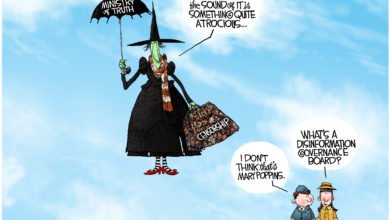Why Texas Is Right to Try to Put an End to Taxpayer Funded Lobbying
The Texas State Senate passed a bill last week that would eliminate the practice of taxpayer-funded lobbying, and the House looks poised to pass it as well. Few states have enacted such statutes, making the Lonestar State one to watch in the coming weeks.
This has been a long-running legislative effort, with a similar bill coming close to passing in 2019. But this time around, Republican support has grown. Lt. Governor Dan Patrick issued a statement on the Senate’s vote stating, “The vast majority of Texans in both political parties have long-supported ending taxpayer-funded lobbying and it is a top priority for me. Texas voters simply do not want the local officials they have elected to represent them spending their tax dollars on hired-gun lobbyists who often have no connection to their community and may be working against their interests.”
Governor Greg Abbott has also indicated his support, as has House Speaker Dade Phelan.
Austin—don’t even try to defend taxpayer-funded lobbying.
It is indefensible that you tax residents to get money that you use to hire lobbyists to support legislation to allow you to tax even more. https://t.co/y2uaDjXBvg
— Greg Abbott (@GregAbbott_TX) November 28, 2020
The support of leadership isn’t a mandatory requirement for a bill to pass, but it certainly makes it much more likely, which could be great news for taxpaying Texans.
Americans pay a lot of money in taxes. Estimates show the average person loses 30 percent of their income on income taxes, Social Security, and Medicare alone, and many have a sneaking suspicion their dollars aren’t being used effectively.
There are many reasons to believe they are onto something—one of them being the widespread practice of taxpayer-funded lobbying. This practice can take on a few forms. In one type of scenario, local governments or agencies employ contract lobbyists on the taxpayers’ dime to persuade other government officials to pass regulations, earmarks, and bills. Some agencies employ full-time lobbyists. And in other scenarios, public officials lobby in their official capacity while on the clock.
Though the general public is likely unaware that this goes on at their state legislatures, it’s a pervasive practice. In 2017 alone, Texas spent upwards of $40 million on taxpayer-funded lobbyists. Americans for Prosperity estimates that governments spend nearly $1 trillion each year nationwide lobbying each other.
Not only is this an unfathomable amount of taxpayer waste, it’s also often spent on initiatives that obstruct the will of the people—blocking the passage of popular reforms or implementing crony deals and red tape that hurt consumers while protecting industry insiders.
Americans for Prosperity estimates that governments spend nearly $1 trillion each year nationwide lobbying each other.
As an example, criminal justice reform is wildly popular among voters on both the right and left. This has led many to wonder why more initiatives have not passed in response. But unbeknownst to taxpayers, police unions and district attorney associations lobby heavily against these bills, all in their official capacity. The average taxpayer can’t take a day off work to go lobby on behalf of the issues they care about. But these public officials can, and on the taxpayers’ dime.
Many people express great concern about the influence of money on our system. But what they ought to be most concerned about is the influence of their own money used against them.
Oftentimes, this practice involves smaller governments, like cities and counties, employing lobbyists who petition bigger forms of government, like state legislatures, for more money and resources. This is a highly inefficient way to allocate resources, basing decisions on who has the most access instead of on what produces the most value or efficiency—as the free market would. It’s a recipe for corruption.
One example of this came in 2019. The Texas legislature was considering a property tax relief bill at the time, which was supported by the majority of residents. But local governments didn’t want to lose the income, so they sent taxpayer-funded lobbyists in droves to try to defeat the measure.
According to Texas Representative Mayes Middleton (R-Wallisville), taxpayer-funded lobbyists have also worked to oppose disclosures of what bonds truly cost taxpayers, the constitutional ban on a state income tax, and election integrity in recent years.
And in yet another example, public universities also partake in the practice, often employing lobbyists at least partially on the public’s dime and advocating for more money. All told, the industry spent about $74.5 million to lobby Congress in 2019, though the amount was not broken down between private and public institutions.
It’s easy to see how taxpayer-funded lobbying is a perversion of the system our founders designed. Taxpayers are supposed to have a representative government where their interests are the top priority of those they elect. But with practices like taxpayer-funded lobbying, their voices are not the loudest in the room. Instead, they are forced to pay lobbyists who often work against them.
It’s easy to see how taxpayer-funded lobbying is a perversion of the system our founders designed.
It is appropriate for some public servants to offer testimony on their areas of expertise when requested, but otherwise, they should not be allowed to lobby in their official capacity. Government agencies should also not be allowed to spend taxpayer dollars on lobbying. Public officials do not relinquish the right to have their voices heard in the legislative process. They are, after all, still citizens. But to do so, they should have to come in their plain clothes and on their private time, the same as everyone else.
Ending taxpayer-funded lobbying is actually one of the most significant reforms on the table in this country, and one of the few that would meaningfully restore power to the people. Texas could have a domino effect on other states in enacting this reform, and it’s one we can all get behind.
This article was originally published on FEE.org




